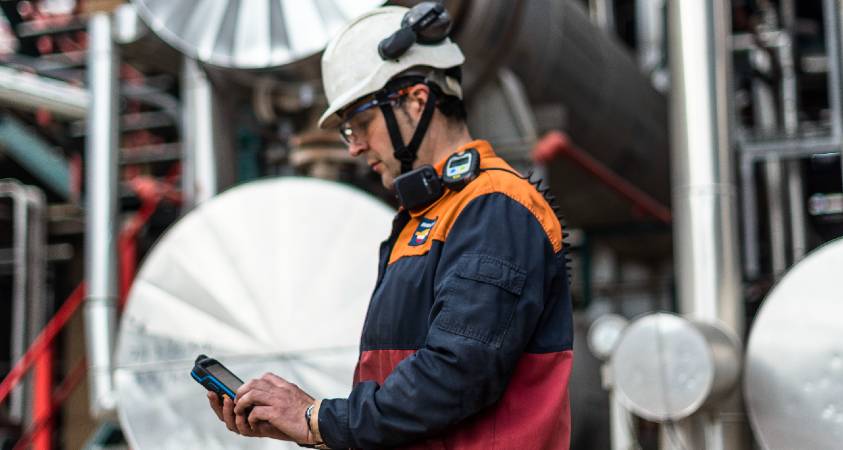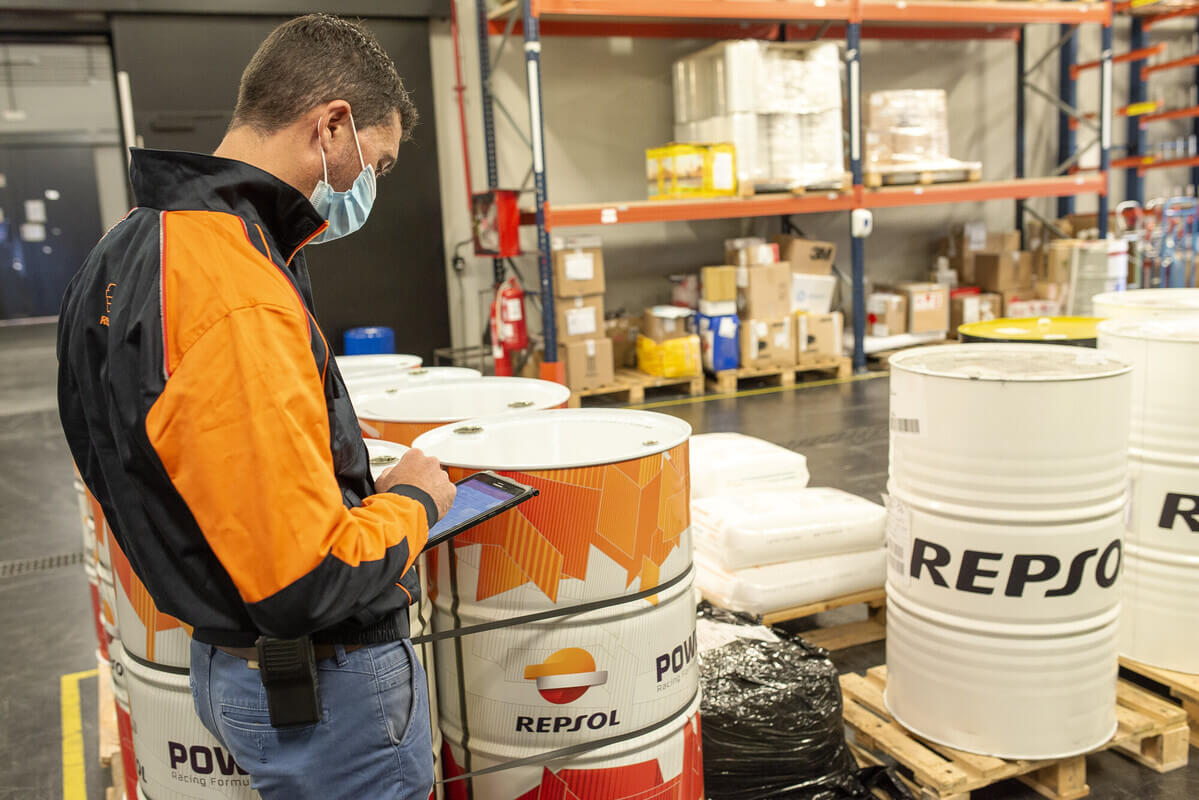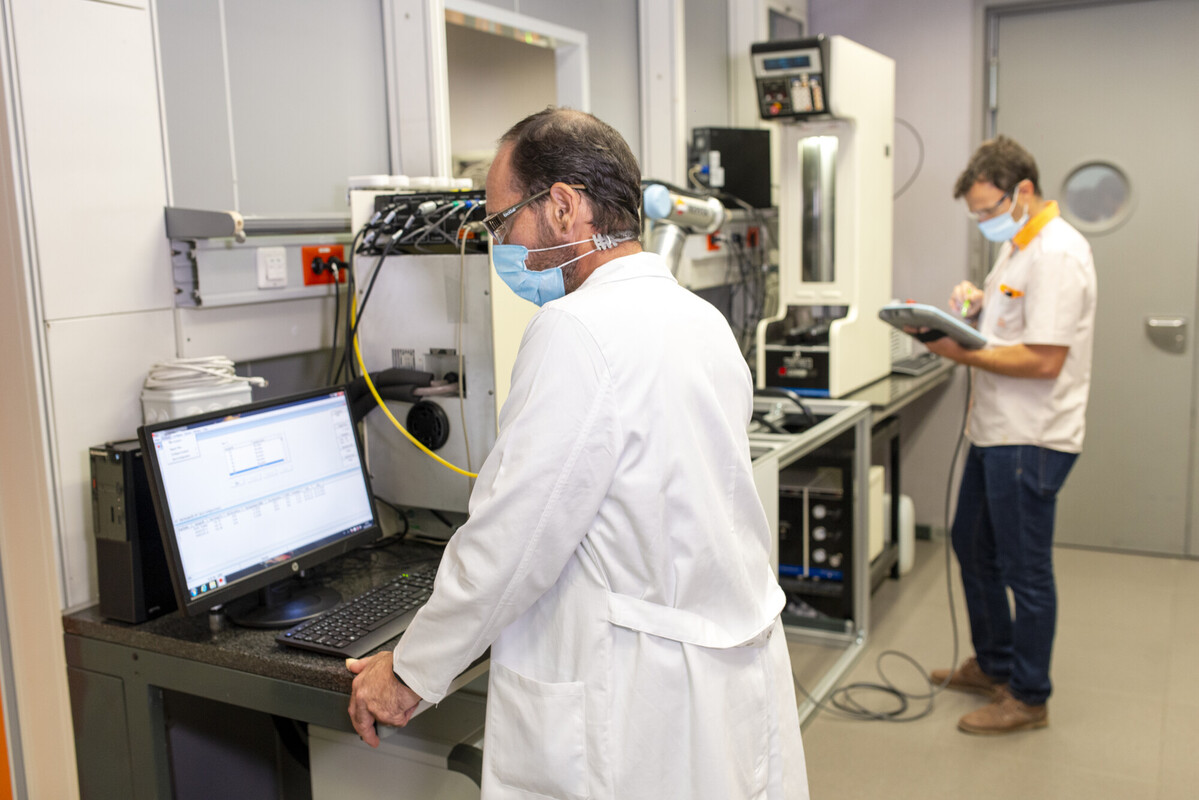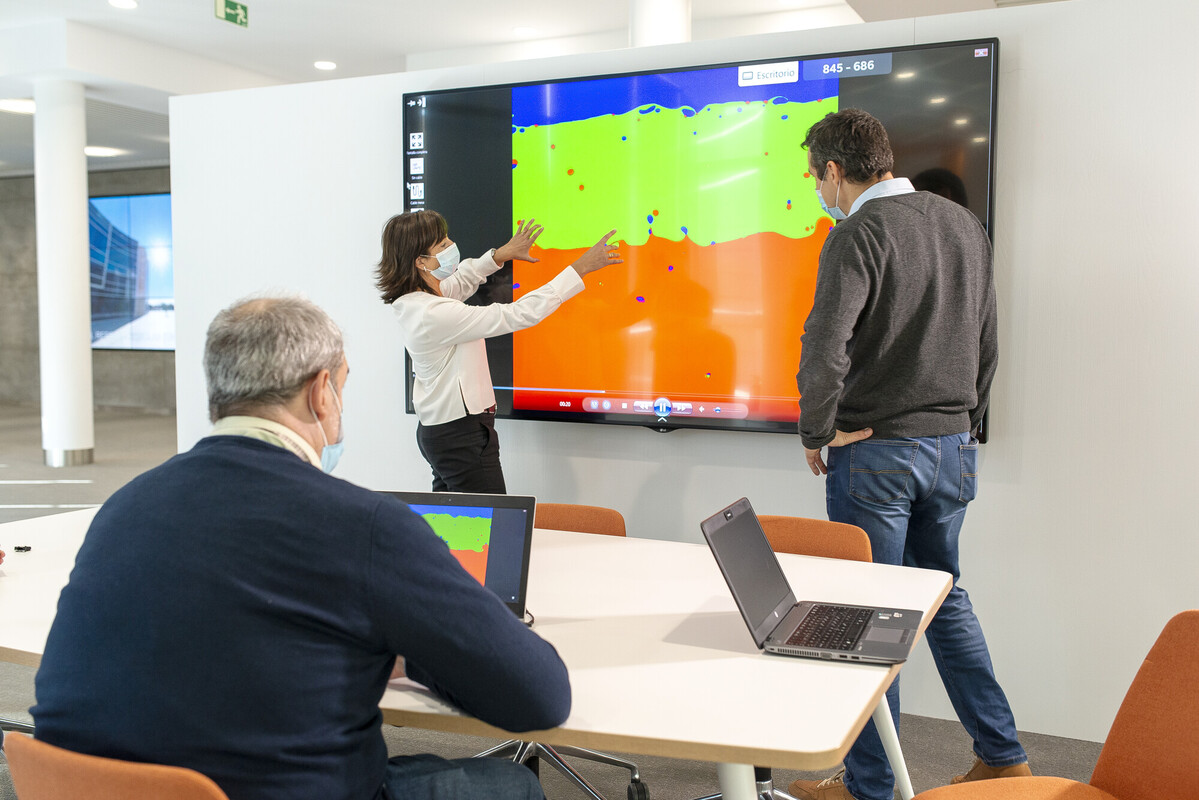
Almost
200 Dual VT
students
have completed an
internship at Repsol
this year
Repsol was one of the first companies to introduce Dual Vocational Training in Spain, and it continues to demonstrate its commitment to this model, which improves young people’s employability. Students completing an internship in the company will now also be trained in the new industrial processes that Repsol is starting up as part of its decarbonisation strategy, in a display of how training makes it possible to keep education in step with companies’ needs.
“Repsol offers the best possible vocational training that is very attractive for students. There is talent to be found in VT, and that’s what we’re looking for,” explains Salvador Lorenzo, Diversity Manager at Repsol. Every year the company welcomes an average of 150 students, mainly industrial chemistry and analysis laboratory students, who complete their internships in the company’s industrial facilities and centres throughout Spain.
Driven by public-private cooperation
In Dual Vocational Training, students spend 33% of their 2,000-hour education completing an internship in a company. The Spanish Royal Decree 1529/2012 that laid the foundations for this form of training will celebrate its 10th anniversary in 2022.

"Although
there are no legal
obligations, companies
normally establish
some form of
compensation for
interns"
Salvador Lorenzo
Diversity Manager
at Repsol
With 162 different qualifications and specialties, Dual VT combines academic teaching in vocational training establishments with in-company learning. “Although there are no legal obligations, companies normally establish some form of compensation for interns, and in Repsol we call this the intern salary,” in accordance with the guidelines established by the regional education ministry in each of the Spanish autonomous communities. Students receive an average of €350 to €400 per month and are registered in the social security system with a special status assimilated to the one of salaried employees
Promoting this form of training is a priority for both the EU and the Spanish government. The Spanish Ministry of Education and Vocational Training has announced a plan including a €1.5 billion investment, 200,000 new places over the next four years, and 80 new qualifications focused on innovation and digital skills. The Transformation, Recovery, and Resilience Plan determines that VT is one of the main levers for the development of the country's economy. Almost 9 billion euros, 13% of the Next Generation EU funds, have been allocated to education and VT, in order to create a quality training pathway that is flexible, integrated, and capitalizable.
Moreover, the VT Partnership was created in May 2021. This initiative brings together government bodies, companies, training centres, social agents, and the media to drive this educational model forward. Repsol has joined this partnership because “public-private cooperation is key to ensure that dual vocational training works as a mechanism to increase young people’s employability. There is still a certain degree of disconnection, but the education system is speeding up the process of bringing training into step with the real demands of the job market.”
People that have
completed a VT
qualification have
an employment
rate of over
70%
Profiles in high demand
Dual Vocational Training “has many advantages for students: It brings them into contact with the world of work at an early stage, which also helps them decide if they have chosen the right profession; the time they spend in a company is long enough to train them as young professionals; And, most importantly, students are trained in a real work environment with expert tutors, always bearing in mind that they are learning, not working,” continues Lorenzo.
“A large number of VT students find jobs after completing training.” It has an average employment rate “that does not drop below 70% in Spain, which is much higher than for university graduates.” Additionally, demand for the professional profiles gained with these qualifications is set to increase even further in the immediate future. According to the European Centre for the Development of Vocational Training’s (CEDEFOP) estimates for 2025, “two-thirds of new jobs will be created for intermediate or advanced professional training students, and the remaining third for university students.”
One of the main challenges is to convince more students to enroll in this kind of training. Only 4% of all vocational training students opt for Dual VT. “This option is still relatively unknown, but the situation is changing and we must continue letting families know about all the advantages.”

From university to Dual VT
Thanks to Dual VT, Tomás Almansa, a Repsol Chemicals plant operator at the Tarragona Industrial Facility, was able to turn his career around. “When I finished my bachelor’s degree in Business Administration and Management, I didn’t have many job opportunities,” he recalls. After searching for and changing between jobs for almost three years, he decided to enroll in a Dual VT course. “When I saw that the course included more than 1,000 hours of workplace training, I went for this option because not only do you get an academic qualification, you also get a lot of practical experience.”
"Dual VT means
'learning by
doing,’ and this
practical training
motivates many
young people"
Salvador Lorenzo
Diversity Manager
at Repsol
A training company
This academic year, almost 200 trainees are completing internships at Repsol, including mechatronics and administration and finance students. The training model is yielding positive results, “and although years back there were far more university students than VT students completing internships with us, the latter group now accounts for around 30%. We have seen that it is a necessary profile, especially students of advanced VT courses, and the same thing is happening in other companies,” says Salvador Lorenzo.
Companies are not bound to hire students after they complete an internship with them, but between 30 and 50% of students that carry out an internship at Repsol enter its employment pool, depending on the year. “Companies need a talent pool and the best way is to train them in our specific processes, thereby guaranteeing that knowledge is transferred within the company. Moreover, companies like ours are not only employers, but also train people that can work in their entire supply chain. We put people on the job market that are already trained.”
This training program must now also help us obtain the talent we need to reach Repsol’s strategic objective of becoming a net zero emissions company by 2025. Industrial chemistry will continue to be the energy company’s main Dual VT specialty “because it is the basis of our business.” Students “will witness the company’s transformation” and learn about the new industrial processes being implemented to produce renewable hydrogen or diesel from used cooking oil in the Petronor refinery, or advanced biofuels in Cartagena.
The key role of tutors
Tutors and instructors play a crucial role in this learning model. In each area there is a tutor who is responsible for the trainees and proposes a learning contract or plan that details the activities necessary to acquire the skills defined by the academic qualification and practical workplace training. “Tutors need to be experienced professionals that have a vocation for teaching and represent the company’s values,” Lorenzo sums up. In coordination with the educational centre, the tutor monitors the student throughout the academic year and carries out the final assessment.
"I also started
out at Repsol as
an intern, and it
was a very positive
time for me"
Tomás Almarcha
Repsol Chemicals
plant operator
Repsol asks students and interns alike to complete a survey at the end of the internship, and “the feedback is very positive, with 95% of tutors stating they would like to do it again.” Piedad Curiel is one of them. Shehas been a tutor at the Repsol Technology Lab since 2016. “It involves a certain degree of responsibility, but it is also very rewarding as you support students during their first work experience. I also started out at Repsol as an intern, and it was a very positive time for me. Now I’m on the other side, and I want my students to have the same experience.”
Dual VT “is a great opportunity for students to put all the theory they have learned into practice, and it is a win-win situation: students develop their professional skills while the company gets the professionals that it needs,” continues Curiel, who believes that this educational model “helps reduce early school leaving.”
“Many young people are lost and don’t know what to study. They are exposed to many apocalyptic messages like they aren’t going to find a job even if they have two degrees and can speak two languages. In Dual VT, students learn differently; they learn by doing, and this method motivates many young people. That is why this model is so successful in other European countries,” concludes Lorenzo.
Downloads



